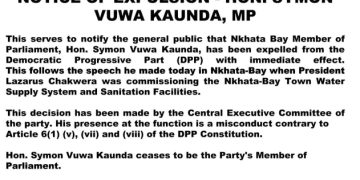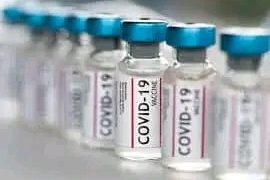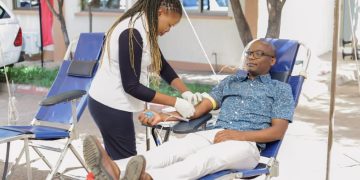On International Anti-Corruption Day on December 11, the United Nations in Malawi underlines the need to root out corruption if Malawi is to recover better from COVID-19 and accelerate progress to achieve sustainable development by 2030.
UN Resident Coordinator, Maria Jose Torres, said, while corruption impacts every country, it is the poor who are hurt the most as it hinders their access to essential services as well as opportunities to prosper together.
“Malawi should vigorously deal with the endemic corruption that has potential to ruin efforts to achieve the Sustainable Development Goals, and undermine democracy and the rule of law,” said Torres.
Human rights violations, impunity, market distortions and organized crime all surge when corruption thrives.
“This erodes quality of life, threatens human security and exacerbates human suffering,” she said.
“Preventing corruption means that every dollar spent on development activities actually brings the intended impact of transforming lives and communities.
A robust and unbiased fight against corruption therefore contributes to reducing inequalities and eradicating poverty,” said Torres.
The UN commends those in Malawi who have shown their determination to fight corruption and calls for increased independence, empowerment and support to institutions such as the Anti-Corruption Bureau (ACB) and the Ombudsman.
“To win the fight against corruption, more robust systems for accountability, transparency and integrity are needed; businesspeople must act responsibly; and a vibrant civic space and open access to information should be guaranteed,” Torres added.
“A change in behaviour to uproot a culture of corruption and instill positive values are essential.”
On this occasion, the UN Secretary General, Antonio Guterres, has said: “Corruption is criminal, immoral and the ultimate betrayal of public trust… I urge all governments and all











































